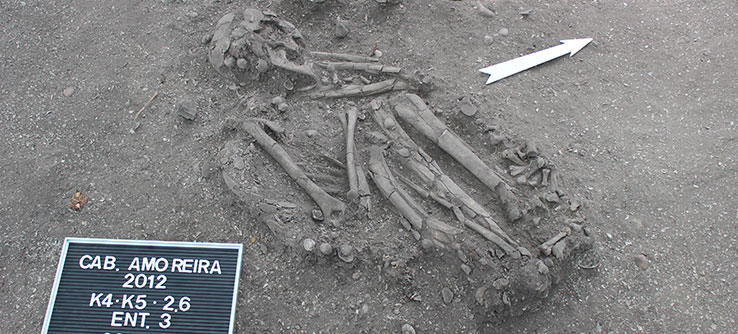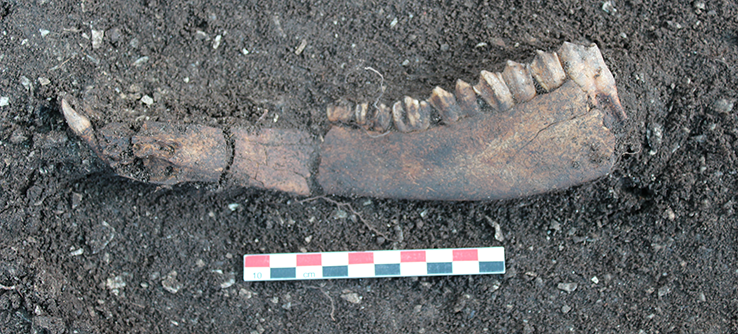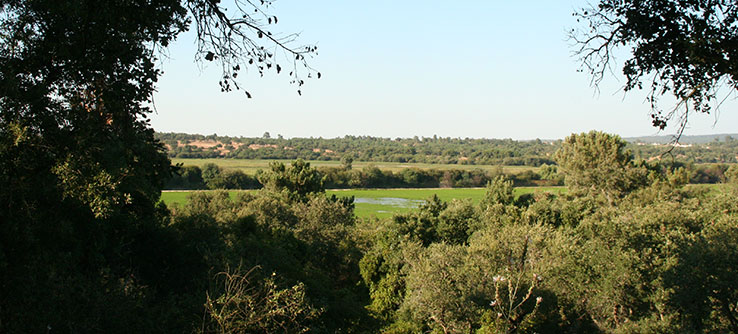Fieldwork
This listing expired on October 1, 2019. Please contact info@earthwatch.org for any updated information.



Location: Muge, US
Season: August 6, 2018 to September 29, 2019
Session Dates: Aug 06, 2018 - Aug 19, 2018; Aug 06, 2018 - Aug 12, 2018; Aug 13, 2018 - Aug 19, 2018; Aug 27, 2018 - Sep 09, 2018; Aug 27, 2018 - Sep 02, 2018; Sep 03, 2018 - Sep 09, 2018; Sep 17, 2018 - Sep 30, 2018; Sep 17, 2018 - Sep 23, 2018; Sep 24, 2018 - Sep 30, 2018; Aug 05, 2019 - Aug 11, 2019; Aug 05, 2019 - Aug 18, 2019; Aug 12, 2019 - Aug 18, 2019; Aug 26, 2019 - Sep 01, 2019; Aug 26, 2019 - Sep 08, 2019; Sep 02, 2019 - Sep 08, 2019; Sep 16, 2019 - Sep 22, 2019; Sep 16, 2019 - Sep 29, 2019; Sep 23, 2019 - Sep 29, 2019
Deadline Type: Contact for details
Website: http://earthwatch.org/Expeditions/Discovering-Ancient-Societies-in-Portugal
Program Type:
Volunteer
RPA Certified:
no
Affiliation:
Earthwatch Institute; Universidade do Algarve in Portugal
Project Director:
Dr. Nuno Bicho, Professor/Director of Interdisciplinary Center for Archaeology and Evolution of Human Behaviour, Universidade do Algarve
Project Description:
Around 8,000 years ago, Central Portugal underwent a dramatic shift in lifestyles from hunting and gathering to farming and herding. Usually thought of as one culture replacing another, there is evidence to suggest these cultural systems coexisted.
The Mesolithic-Neolithic transition remains one of the most controversial issues in prehistory archaeology, attracting significant archaeological debate and extensive research. The common-held belief is that hunter-gatherers disappeared from Central Portugal around 7,000 years ago, and later, farmers and herders settled the area. But now, archaeologists are uncovering clues contradicting this.
By analyzing bone tools, shells, ornaments and human remains, researchers will trace the transition between these periods to better understand the complex changes not only in technology and subsistence, but also in how people thought about themselves and the world around them, as well as the nature of their social interactions.
Join researchers in Tagus Valley, Portugal, one of the most important regions to study this transitional phase, and help discover the answers to establish a timeline. You’ll excavate, sifting for tools and human remains, while working to preserve part of Portugal’s natural and cultural heritage.
Period(s) of Occupation: Mesolithic and Neolithic
Notes:
Open to archaeologists as well as non-trained citizen scientists--no experience required!
Project Size: 1-24 participants
Minimum Length of Stay for Volunteers: 7 Days
Minimum Age: 15
Experience Required: None!
Room and Board Arrangements:
The team will stay at a farmhouse in the Salvaterra de Magos region close to the field site. It has comfortable rooms with 2–4 single beds, so volunteers can expect to share their room with another teammate depending on team size and makeup. Rooms will be split by gender. Rooms for couples are possible with advanced notice, but are not guaranteed. Unfortunately, single rooms are not available. Sheets, towels, pillows and blankets will all be provided. The bathrooms are shared (divided by gender) and have conventional flush toilets and hot showers. Electrical sockets (outlets) in Portugal are 220-240 volts AC. The plug types that are commonly used are: “Type C” Europlug and the “Type E” and “Type F” Schuko. The teams will eat local Portuguese cuisine, which is fresh from the many farms in the area. Soups and stews are typical in the area due to the presence of ancient convents and monasteries where they originate. Staff and volunteers will prepare breakfasts, lunches and snacks. Drinking water will be provided. Breakfast will take place at the accommodations, and field staff and volunteers will enjoy lunch together in the field, usually at the laboratory facilities. Fresh fruits and energy bars are available for snacks. Dinner will be arranged at local restaurants.The following are examples of foods you may find in the field. Variety depends on availability. We appreciate your flexibility. Cost: $2,850-$3,995
Earthwatch Institute
114 Western Ave
Boston
Massachusetts
2134
United States
Phone: 1-800-776-0188
The AIA is North America's largest and oldest nonprofit organization dedicated to archaeology. The Institute advances awareness, education, fieldwork, preservation, publication, and research of archaeological sites and cultural heritage throughout the world. Your contribution makes a difference.
Notifications